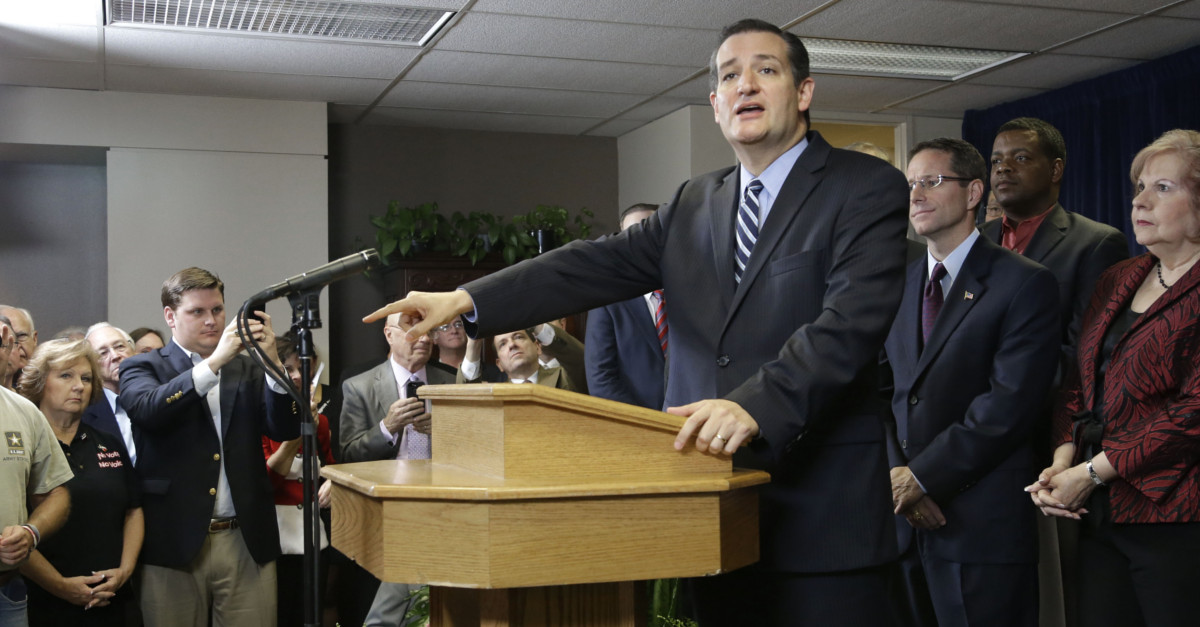On December 17, President Barack Obama delivered a speech that was 50 years in the making. Normalized diplomatic relations with Cuba are not here yet, but they will be soon enough.
Videos by Rare
Many folks cheered the news. A few Republican politicians pointedly sat on their hands. Ted Cruz said, “Fidel and Raul Castro have just received both international legitimacy and a badly-needed economic lifeline from President Obama. But they remain in control of a totalitarian police state modeled on their old state sponsor, the Soviet Union.”
Cruz might notice that the Soviet Union has been gone for some time. Brothers Fidel and Raul Castro are still in charge of Cuba after 50 years. An embargo is not a new proposal being shot down by President Obama. It was tried, and it failed to do the job. So Obama is looking at a policy that has done nothing good and changing it.
Contrasting with most of the rest of the 2016 crop of GOP presidential hopefuls, Rand Paul identified the problem with the sanctions themselves. To hear certain conservatives tell it, to remove the sanctions is to keep the Communist revolution alive. In fact, all that the U.S. policy has done is make the lives of ordinary apolitical Cuban citizens more miserable.
Now diplomacy and American culture and capital just might be able to help the people of Cuba. A softening of relations doesn’t mean 100 Starbucks will open in Havana tomorrow or that the government will crumble next week, freeing the people from their government’s despotism. It does mean that for the good of the people of Cuba, America has decided to put away put away the long pointy object and try the carrot of commerce.
If the lesson that America takes from the failure of sanctions in Cuba is that sanctions don’t work, many ordinary folks the world over would rejoice. The people who suffer under sanctions are not the leadership of repressive regimes in Baghdad or Tehran or Cuba but their subjects.
During the 1990s, then-Secretary of State Madeleine Albright famously and damningly said that the alleged 500,000 children dead from the U.S. sanctions against Iraq was “worth it.” The number is highly debatable but the point is that innocents in Iraq suffered and died under sanctions that didn’t topple Saddam Hussein.
And while Americans wring our hands over the Iran’s nuclear ambitions, the government continues to do what it will while medical supplies are in short supply in Tehran. The people have suffered greatly under their authoritarian government. That suffering has only been multiplied by misguided U.S. policy.
This seems vengeful and perverse. If we’re the good guys, showing the benefits of freedom and free trade should be a no-brainer. As the great French economist Frederic Bastiat said, “if good don’t cross borders, armies surely will.”
No love is needed between the two parties to trade, just enlightened self-interest that motivates the exchange. And these exchanges tend to be between private actors, not heads of state: businessmen, farmers, artisans, people who the Castros’ Communism tends to tread underfoot.



